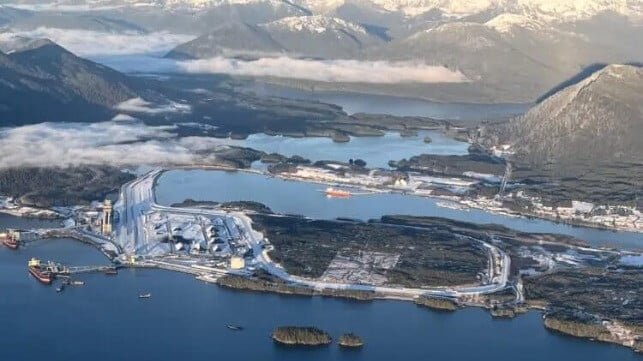Trigon Pacific Terminals to Expand LPG Exports to Asian Markets
Canadian firm Trigon Pacific Terminals has announced its plans to increase bulk liquefied petroleum gas (LPG) exports to Asian markets following the final investment decision (FID) on a C$750 million export facility at the Port of Prince Rupert, British Columbia. This development comes as Canada aims to enhance its energy exports, with the Canada LNG plant in Vancouver set to begin exports soon.
Trigon Pacific Terminals, a privately-owned company, considers reaching the FID for the new export facility a significant milestone. The facility, with a capacity of 2.5 million tonnes per annum, is expected to start exports in late 2029. It will play a crucial role in expanding Canadian LPG export sales to growing Asian markets such as Japan, South Korea, and India.
The new facility, pending necessary legal and regulatory approvals, will involve the construction of 98,000 cubic meters of LPG storage capacity and utilize existing vessel loading infrastructure. It will also make use of existing rail yards, with new rail unloading facilities to facilitate unit train unloading.
Trigon Pacific Terminals currently operates a multi-commodity bulk export terminal at Prince Rupert, capable of loading metallurgical coal, thermal coal, and petroleum coke at a rate of 9,000 tonnes per hour. In response to the Canadian government’s decision to ban thermal coal exports starting in 2030, the company decided to redevelop a portion of its coal facilities for LPG exports in 2023.
The company emphasizes that investing in the LPG export facility aligns with the available terminal capacity and infrastructure, coupled with its expertise in handling propane. Trigon Pacific Terminals is engaged in ongoing discussions with Asian markets for LPG off-take agreements, with Japan showing increased interest in Canadian LPG imports.
Furthermore, British Columbia’s Environmental Assessment Office has confirmed the commencement of work on the Prince Rupert Gas Transmission natural gas pipeline project, connecting Hudson’s Hope to Lelu Island near Prince Rupert to support LNG transportation to a proposed liquefaction plant.
According to the Canada Energy Regulator, the country’s propane and butane exports have been on a steady growth trajectory due to increased natural gas production. In 2024, propane exports averaged 218,300 barrels per day, up by 9.2%, while butane exports surged by 15% to an average of 56,100 barrels per day.
Rob Booker, CEO of Trigon Pacific Terminals, expressed, “This FID is a pivotal moment for Trigon and for Canada’s energy sector, creating new pathways for Canadian LPG to reach international markets, and driving economic growth, resiliency, and opportunity for Canadians.”
Trigon Pacific Terminals aims to address the challenges faced by Canadian energy producers in accessing export markets due to capacity constraints at existing Prince Rupert facilities. This new facility joins the Ridley Island Energy Export Facility, a large-scale export facility being constructed by AltaGas and Royal Vopak at Prince Rupert.

